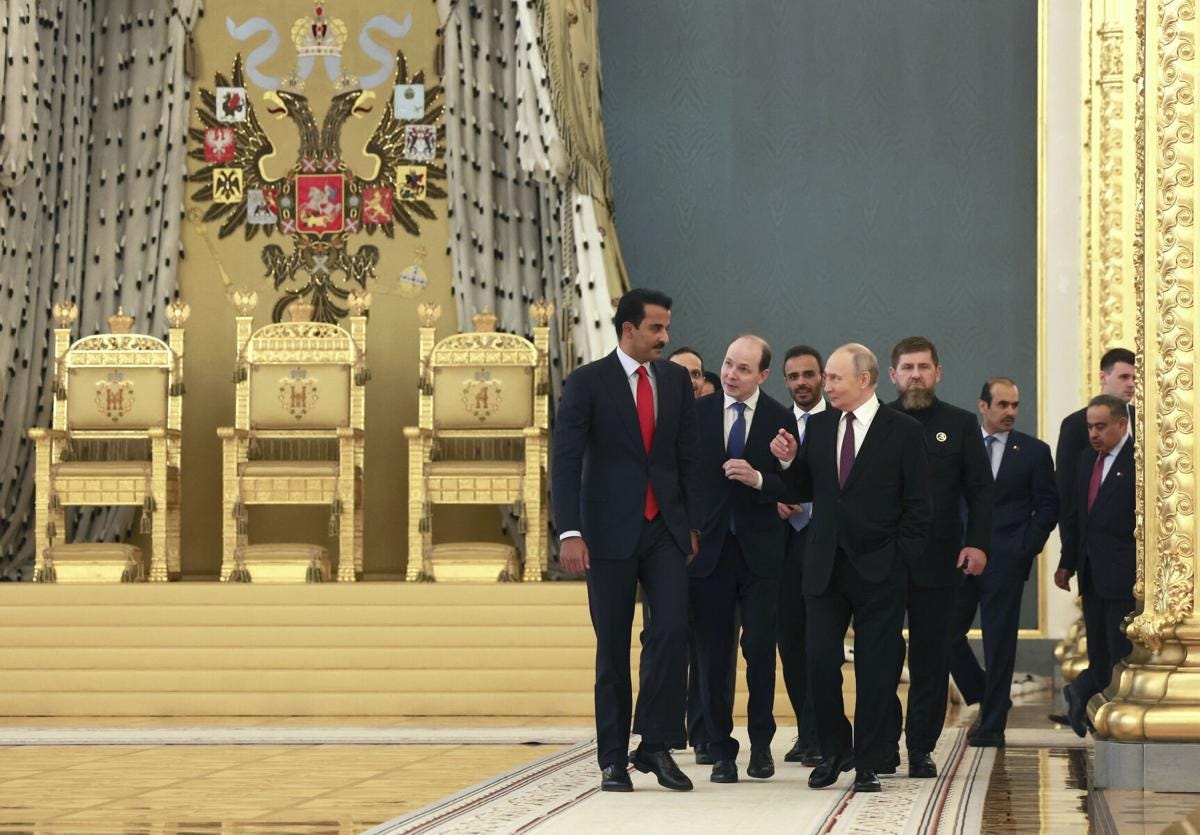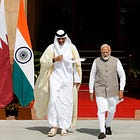Russo-Qatari $2 Billion Partnership: Doha's Bet on Multipolarity
This deepening relationship may reflect the United States, under Trump, positioning Qatar as a conduit for shared investments.
The Qatari Emir, Sheikh Tamim bin Hamad Al Thani, joined President Vladimir Putin in Moscow to oversee the signing of a $2 billion joint investment platform between the Russian Direct Investment Fund (RDIF) and the Qatar Investment Authority (QIA), strengthening the established partnership between the two sovereign wealth funds. While economic in focus, the deal underscores Doha’s desire to diversify its political partnerships, reflecting its nuanced balancing act among China, India, and the United States. The timing of this initiative hints at a possible Washington-inspired effort to enhance Qatar’s mediation role, potentially extending to the Russia–Ukraine conflict.
Leveraging a Shared Partner
Qatar stands as the largest Arab investor in Russia’s economy, with the Qatar Investment Authority (QIA) committing over $13 billion since diplomatic relations were established more than three decades ago. Qatar’s relatively-unique approach to a non-aligned foreign policy has driven closer ties with Russia, a bond further strengthened by the 2017 GCC diplomatic crisis that drew the two nations together.
This deepening relationship may reflect the United States, under Trump, positioning Qatar as a conduit for shared investments, potentially aligning with a broader strategy to engage with BRICS. The Gulf nation represents an attractive partner in mediation efforts, given its ongoing involvement in the Gaza peace talks as well as its previous role facilitating US–Taliban negotiations. Equally, Doha may be leveraging its Russian ties to forge an independent path, in recognition of the perceived demise of American influence.
The recent $2 billion QIA-RDIF investment platform underscores Qatar’s swift move to diversify its portfolio, possibly in response to uncertainties surrounding a Trump-led US administration. The RDIF has outlined that the fund will prioritise technology, healthcare, and mineral extraction projects, alongside fostering mutual trade and investment. Moreover, Qatar and Russia have sustained a notably higher frequency of high-level leader engagements compared to other GCC states, reinforcing their strategic partnership.
Prospects and Challenges Ahead
Looking forward, the success of the expanded investment platform will depend on the stability of the geopolitical environment and the efficacy of joint ventures in delivering tangible economic benefits. Both nations will need to navigate potential challenges, including regulatory hurdles, market volatility, and the broader implications of their partnership on existing alliances.
Nonetheless, the reinforced QIA-RDIF alliance signifies a deliberate and strategic effort by Qatar and Russia to solidify their economic ties, enhance their global standing, and adapt to the evolving contours of international relations. As both countries continue to pursue their respective national interests, their collaboration may serve as a model for similar partnerships seeking to balance economic objectives with geopolitical considerations. More broadly, the move represents Doha’s step closer to the BRICS nations.




